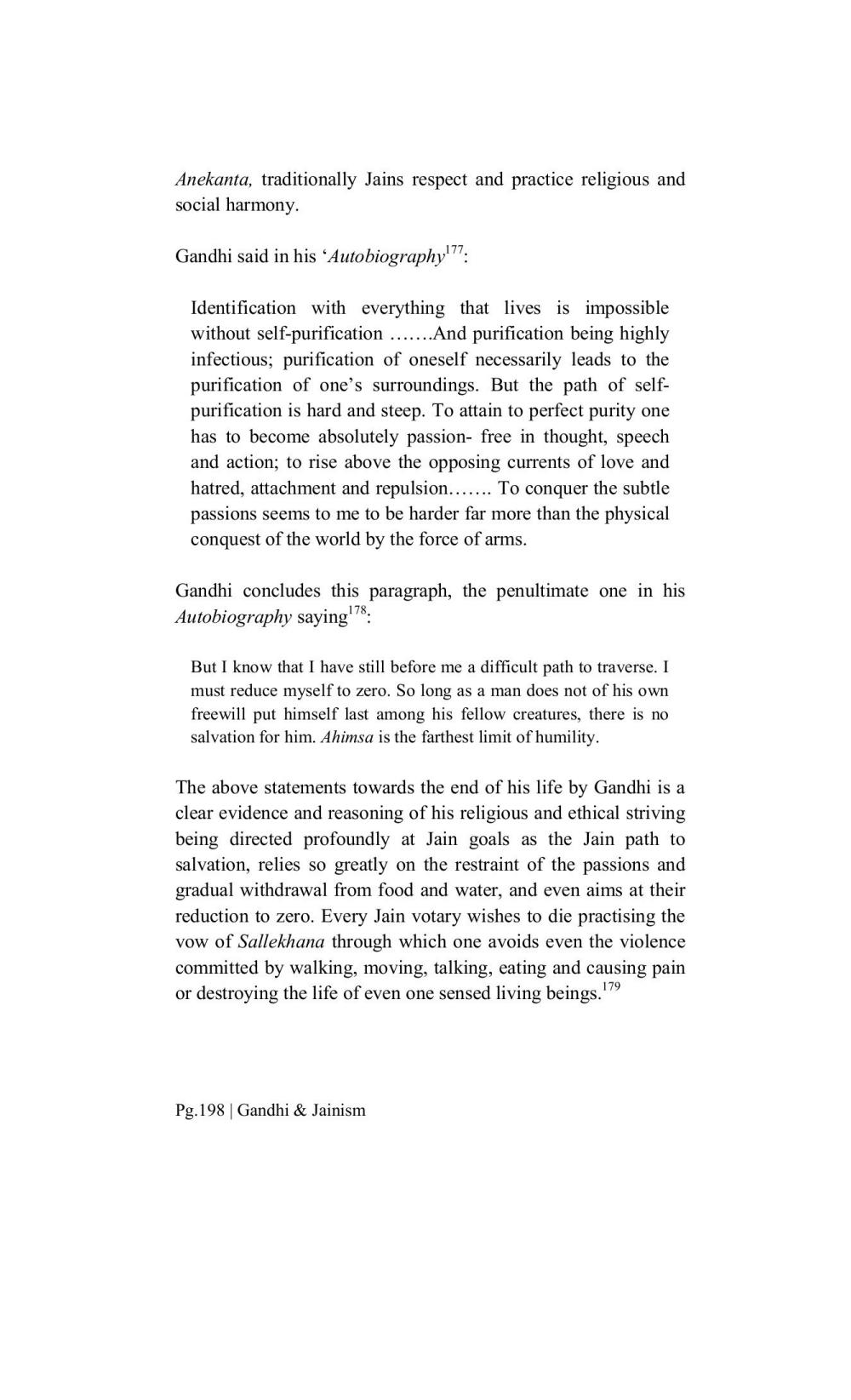________________
Anekanta, traditionally Jains respect and practice religious and social harmony.
Gandhi said in his 'Autobiography177:
Identification with everything that lives is impossible without self-purification.......And purification being highly infectious; purification of oneself necessarily leads to the purification of one's surroundings. But the path of selfpurification is hard and steep. To attain to perfect purity one has to become absolutely passion- free in thought, speech and action; to rise above the opposing currents of love and hatred, attachment and repulsion....... To conquer the subtle passions seems to me to be harder far more than the physical conquest of the world by the force of arms.
Gandhi concludes this paragraph, the penultimate one in his Autobiography saying 178.
But I know that I have still before me a difficult path to traverse. I must reduce myself to zero. So long as a man does not of his own freewill put himself last among his fellow creatures, there is no salvation for him. Ahimsa is the farthest limit of humility.
The above statements towards the end of his life by Gandhi is a clear evidence and reasoning of his religious and ethical striving being directed profoundly at Jain goals as the Jain path to salvation, relies so greatly on the restraint of the passions and gradual withdrawal from food and water, and even aims at their reduction to zero. Every Jain votary wishes to die practising the vow of Sallekhana through which one avoids even the violence committed by walking, moving, talking, eating and causing pain or destroying the life of even one sensed living beings."
179
Pg.198 Gandhi & Jainism




